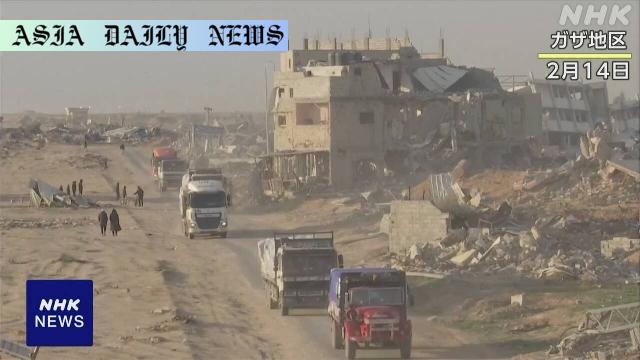Hostages: Hamas aims to free three captives, navigating accusations over aid restrictions, in the sixth round of releases since ceasefire.
Hamas identifies three hostages for release on Saturday.
Israel demands the release, threatening a ceasefire end.
Mediators Egypt and Qatar negotiate for permanent peace.

Introduction
Tensions between Hamas and Israel have dominated global headlines as the ceasefire, which has offered some temporary relief to the conflict, faces critical pressure. As the humanitarian situation in Gaza remains dire, Hamas announced plans to release three hostages, highlighting the sixth exchange since the ceasefire commenced on January 19. Despite this sign of progress, the relationship between both sides is fraught with accusations and ongoing mistrust.
The Current Plan for Hostage Release
On Saturday, Hamas intends to release three hostages. While the announcement brings hope to the families of those captives, it also underscores the fragile nature of the ongoing truce. Hamas postponed the release earlier, alleging that Israel failed to comply with arrangements to allow vital aid, including mobile housing units and heavy machinery, into war-torn Gaza. This delay has only further strained the delicate relationship between both parties.
Israel’s Stance on the Ceasefire
The Israeli government has made its position clear – the ceasefire will come to an abrupt end if the proposed release of the hostages does not happen on Saturday. This statement reflects a hardline approach that underscores the urgency of securing the captives’ freedom but also signifies potential risks to the fragile ceasefire agreements that have so far brought some respite from deadly exchanges.
Role of International Mediators
International entities, specifically Egypt and Qatar, have stepped in to mediate the conflict. Their role in negotiating temporary and potentially permanent resolutions has been critical. These mediators are urging both sides to adhere strictly to their truce commitments while continuing dialogue to achieve a lasting and peaceful resolution that ensures the release of all hostages and addresses political grievances.
A Potential Permanent Ceasefire?
Efforts toward a permanent ceasefire, though welcomed globally, remain fraught with challenges. Negotiations are ongoing to secure an agreement that could bring peace to the region. Releasing hostages in phases is seen as a step in the right direction, but underlying tensions and mutual distrust pose significant barriers to achieving lasting peace.
The Broader Impact of the Conflict
Beyond the immediate tension, the ongoing conflict in Gaza has deeply impacted civilians on both sides. The region’s need for humanitarian aid remains acute, and the failure to facilitate such assistance only exacerbates the crisis. The actions by both Hamas and Israel during this ceasefire will likely set the tone for future negotiations and international involvement.
Conclusion
As Saturday approaches, the world watches with bated breath to see if Hamas will deliver on its promise to release three captives. Whether these actions signify movement toward lasting peace or simply mark another fleeting pause in a perpetually violent cycle will become clearer in the days ahead. Regardless, the importance of a sustained, diplomatic solution remains paramount in ensuring the safety and well-being of all affected in the region.



Commentary
The Dramatic Unfolding of Hostage Releases
The decision by Hamas to release three more hostages is both hopeful and emblematic of the complex nature of this conflict. It highlights how even the smallest gestures of goodwill in the context of war carry immense weight. For the families of those captives, this news undoubtedly brings relief, even as the larger picture of ongoing strife makes sustained peace seem like a distant dream.
Challenges Facing Ceasefire Agreements
One cannot overlook the precariousness of this ceasefire. Israel’s stern warning that it will terminate the truce if the release doesn’t occur emphasizes the fragility of this process. While hostage releases may bring temporary ease, the lack of trust between the sides underpins why achieving lasting peace has been an uphill battle. Miscommunication about aid entrances or delays in agreements only exacerbates these tensions.
The Role of International Mediators
Egypt and Qatar continue to play an instrumental role, but their efforts rest on a knife’s edge. Their capacity to manage the delicate balance between providing diplomatic solutions and maintaining neutrality is something to note. The global community should consider bolstering these mediators’ efforts, perhaps supplementing them with support from the United Nations or other major entities.
A Call for Peace and Action
As these negotiations continue, it is critical to remember that human lives are at stake. Both parties must focus on alleviating civilian suffering and working toward long-term solutions. The release of these hostages is a small but meaningful step in that direction, and we can only hope it marks the beginning of sustained efforts for peace.